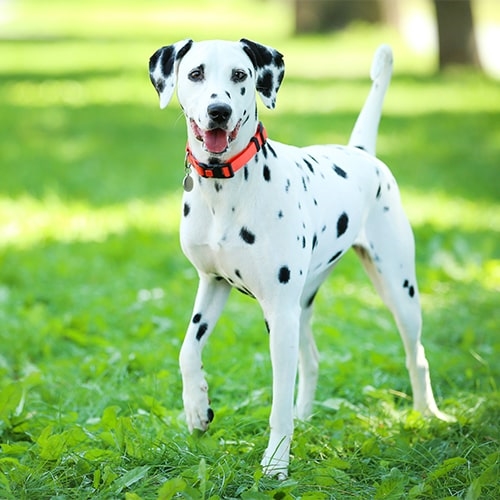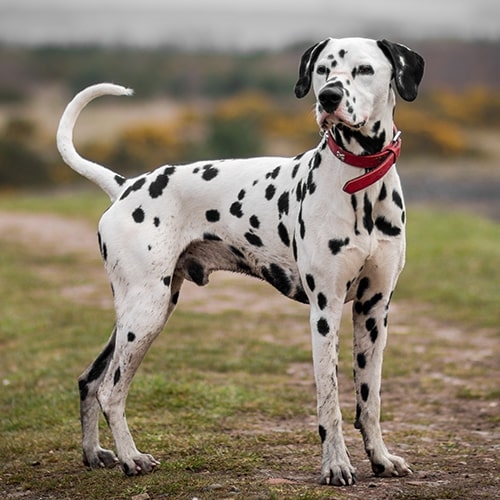Dalmatians are often known for their distinctive coat pattern and their association with fire trucks, but did you know that they can be quite challenging to take care of? Despite their charming appearance, Dalmatians require a considerable amount of time, effort, and attention to thrive as pets. Their high energy levels and need for mental stimulation can make them a handful for inexperienced owners. So, are Dalmatians easy to take care of? Let’s explore further.
Taking care of Dalmatians requires a deep understanding of their breed characteristics and history. Originally bred as carriage dogs, Dalmatians have an innate need for regular exercise and mental stimulation. Without adequate physical and mental outlets, they can become bored and resort to destructive behaviors. Additionally, Dalmatians are prone to certain health issues, such as deafness and urinary stones, which demand special attention from their owners. However, with proper training, consistent exercise, and a well-balanced diet, Dalmatians can make loyal and loving companions for those willing to put in the effort. It’s crucial to provide them with an enriching environment that meets their physical and mental needs to ensure they live happy and fulfilled lives.
Dalmatians can be challenging to take care of due to their high energy levels and specific needs. However, with the right knowledge and commitment, they can become great companions. Regular exercise and mental stimulation, such as obedience training and interactive play, are essential for their well-being. Dalmatians also require a balanced diet, grooming to maintain their coat, and plenty of socialization. If you’re willing to put in the time and effort, Dalmatians can be a rewarding and fulfilling addition to your family.

Are Dalmatians Easy to Take Care Of?
Dalmatians are known for their unique appearance and energetic personality. If you’re considering adding a Dalmatian to your family, you may be wondering if they are easy to take care of. While Dalmatians can be wonderful pets, they do require a certain level of commitment and attention. In this article, we will explore the various aspects of caring for a Dalmatian and provide you with valuable information to help you understand if they are the right fit for your lifestyle.
The Exercise Needs of Dalmatians
Dalmatians are an active and energetic breed, known for their endurance and love for physical activities. Regular exercise is crucial for the overall well-being of a Dalmatian. They have high exercise requirements and thrive in homes where they can channel their energy into various activities. This means that if you lead a sedentary lifestyle or do not have the time to devote to exercise, a Dalmatian may not be the best choice for you. Plan on providing your Dalmatian with at least one to two hours of exercise per day, which can include walks, runs, playing in a secure backyard, or engaging in canine sports such as agility. Without adequate exercise, Dalmatians can become bored, restless, and develop behavioral issues.
In addition to physical exercise, mental stimulation is essential for Dalmatians. Their intelligent and curious nature requires mental challenges to keep them engaged. Consider incorporating puzzle toys, training sessions, and interactive games into your daily routine to keep your Dalmatian’s mind sharp and prevent them from becoming bored or destructive. Providing a stimulating environment will help ensure that your Dalmatian lives a happy and fulfilled life.
Grooming and Coat Care
One of the most distinctive features of a Dalmatian is its short, dense coat, which is covered in spots. While their coat may not require frequent brushing like longer-haired breeds, they still require regular grooming and coat care. Dalmatians shed throughout the year, and during shedding seasons, which typically occur in the spring and fall, a more intensive grooming routine may be necessary.
To keep your Dalmatian’s coat healthy and clean, regular brushing with a soft-bristle brush or a grooming mitt is recommended. This helps to remove loose hair, distribute natural oils, and prevent matting. Additionally, it is important to check and clean your Dalmatian’s ears regularly to prevent infections, as their ears can be prone to wax buildup and moisture retention. Nail trimming, teeth brushing, and regular baths are also essential parts of a Dalmatian’s grooming routine.
Another aspect to consider is that Dalmatians are prone to certain skin conditions and allergies, so it is important to keep an eye out for any signs of irritation or redness. Regular veterinary check-ups are important to ensure the overall health of your Dalmatian’s skin and coat.
Diet and Nutrition
Proper nutrition is crucial for the health and well-being of any dog, and Dalmatians are no exception. However, Dalmatians have specific dietary needs that you should be aware of. They have a genetic predisposition to urinary stones and kidney issues, making it important to carefully monitor their diet.
A Dalmatian’s diet should consist of high-quality, well-balanced dog food that is specifically formulated for their breed’s needs. This includes avoiding foods that are high in purine, such as organ meats and certain types of fish, as these can contribute to the formation of urinary stones. Feeding your Dalmatian a diet that is low in purine and ensuring they have access to plenty of fresh water can help reduce the risk of urinary issues.
It is also important to carefully monitor your Dalmatian’s weight. Obesity can put additional strain on their joints and exacerbate underlying health conditions. Speak to your veterinarian about the appropriate portion sizes and feeding schedule for your Dalmatian to ensure they maintain a healthy weight.
Key Takeaways: Are Dalmatians Easy to Take Care Of?
- Dalmatians are energetic dogs that require regular exercise and mental stimulation.
- Training Dalmatians can be a challenge due to their intelligent and independent nature.
- Dalmatians have specific dietary needs and may be prone to certain health issues.
- Regular grooming is necessary to keep a Dalmatian’s coat clean and healthy.
- Dalmatians have a friendly and loyal nature, making them great family pets with proper care and training.
Frequently Asked Questions
Are you considering getting a Dalmatian? These spotty pups are known for their unique look and energetic personality. Before bringing one into your home, it’s important to consider their care requirements. Here are some common questions about Dalmatians and their care.
1. How much exercise do Dalmatians need?
Dalmatians are an active breed and require a good amount of exercise each day. They have a lot of energy to burn, so regular walks, playtime, and mental stimulation are crucial. Aim for at least an hour of exercise, broken up into multiple sessions, to keep them happy and well-behaved. Without sufficient exercise, Dalmatians can become bored and may develop destructive behaviors.
In addition to physical exercise, engaging their minds is essential. Puzzle toys, training sessions, and interactive games can help keep their active minds occupied. Overall, if you’re an active person or have a yard where they can freely move around, Dalmatians can be a good fit for you.
2. Are Dalmatians good with children?
Dalmatians can be great companions for children, but it’s important to supervise their interactions. Like any breed, individual personalities can vary, so it’s crucial to introduce dogs and children in a controlled environment to ensure everyone’s safety.
It’s also essential to teach children how to properly interact with a dog, including respecting their space, not pulling on their ears or tail, and understanding when to give them alone time. With proper socialization and training, Dalmatians can be wonderful family pets and form strong bonds with children.
3. Do Dalmatians require a lot of grooming?
Dalmatians have a short, dense coat that doesn’t require excessive grooming. They shed moderately throughout the year and may have more significant shedding periods twice a year as their seasons change. Regular brushing with a rubber curry brush or grooming glove can help keep their coat in good condition and remove loose hairs.
Bathing should be done as needed, typically every few months or when they get dirty. However, avoid over-bathing as it can strip their coat of natural oils. Additionally, regular dental care, nail trims, and ear cleaning are essential parts of Dalmatian grooming to keep them healthy and comfortable.
4. Are Dalmatians prone to any health issues?
Like many purebred dogs, Dalmatians have certain health predispositions. One well-known trait is their propensity for urinary stones. They have a unique urinary system that can lead to the formation of crystals and stones, so a specific diet and proper hydration are important for their well-being.
Dalmatians are also susceptible to certain skin conditions, allergies, and deafness. Regular vet check-ups can help detect and address any health concerns early on. By opting for a responsible breeder who performs health screenings on their dogs, you can minimize the risk of some of these conditions.
5. How trainable are Dalmatians?
Dalmatians are intelligent dogs, but they can be independent and stubborn at times. Consistent, positive reinforcement training methods work best with this breed. Use rewards, such as treats and praise, to motivate them and reinforce desired behaviors.
Start training early and be patient and consistent to achieve the best results. Dalmatians also thrive when given mental challenges, so incorporating obedience training, tricks, and interactive games into their routine can keep them mentally stimulated and eager to learn.

The truth about Dalmatians | Beautiful dog breed
Summary
So, are Dalmatians easy to take care of? It’s clear that they require
special attention and a lot of time and energy. While their unique
appearance and playful nature can be charming, potential owners should be
aware of the challenges that come with this breed. Dalmatians need regular
exercise, mental stimulation, and a strong commitment to training. Their
high-energy levels and propensity for developing certain health issues
mean that they may not be the best fit for everyone. It’s important to
carefully research and consider all aspects before welcoming a Dalmatian
into your home.
